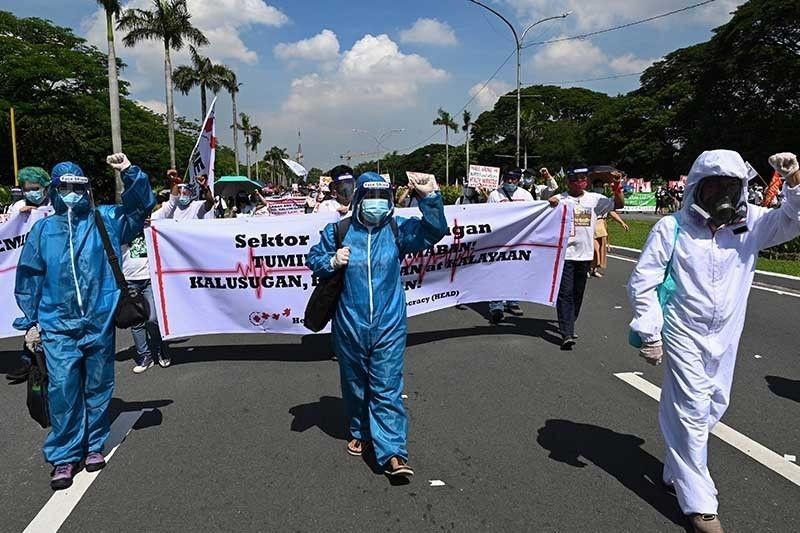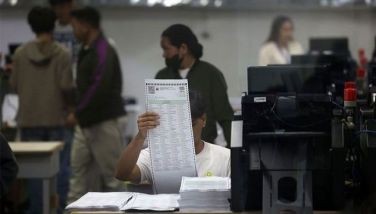UN report: 'Weak' Philippine healthcare system lacks nurses, hospital beds

MANILA, Philippines — While other Southeast Asian countries have good health care capacity, the Philippines’ health care system is “particularly concerning,” the United Nations said in a report on the impacts of the coronavirus disease (COVID-19) in the region.
According to a UN policy brief released Thursday, Southeast Asia’s healthcare sector exhibits different degrees of preparedness in terms of responding to public health emergencies such as COVID-19 pandemic.
“More than half of the subregion’s countries are vulnerable because of weak health systems, including Myanmar, Cambodia, Indonesia, Lao PDR, the Philippines and Timor Leste,” the UN policy brief said.
“Among the 11 countries covered in this brief, the situation is particularly concerning for Myanmar and the Philippines, which have pre-existing humanitarian caseloads, and have therefore been incorporated in the recently launched Global Humanitarian Response Plan,” it added.
Global Humanitarian Response Plan aims to help countries to suppress coronavirus transmission.
In his fifth State of the Nation Address Tuesday, President Rodrigo Duterte admitted the government’s response to the coronavirus crisis had been “far from perfect”
He, however, failed to mention in his annual address a detailed plan to address the continued rise of COVID-19 cases. The Palace has said the details were covered in briefings before the president's speech.
COVID-19 has so far infected 85,486 people in the Philippines—the second highest in Southeast Asia behind Indonesia. At least 1,962 people have died from COVID-19 in the country, while 26,996 have recovered.
Two nurses per 10,000 people
The UN report used four indicators to evaluate the health care systems of Southeast Asian nations: number of physicians, nurses and midwives, and hospital beds per 10,000 people, and their health expenditure in 2016.
The Philippines only has two nurses and midwives per 10,000 individuals, which is the lowest in the region. This is even lower than the proportion in Lao PDR, Myanmar and Cambodia of 10 nurses and midwives per 10,000 people.
Singapore, meanwhile, has the highest with 72.
Filipino nurses and other health care professionals have been leaving the country for jobs abroad because of low wage and poor working condition at home.
According to the UN report, the Philippines only has 10 hospital beds per 10,000 people. Myanmar and Cambodia, have nine and eight beds per 10,000 individuals, respectively.
The Department of Health said occupancy for coronavirus beds is now at 52.3%, while occupancy for non-coronavirus beds is at 50%—both at “warning zone.”
This means 8,577 out of the 16,388 hospital beds dedicated for COVID-19 cases across the country are already being utilized.
“Nationally, malapit na pong ma-overwhelm ang health system, mapapagod ang mga doctor, nurses at nag-aalaga sa atin sa hospital,” DOH Undersecretary Maria Rosario Vergeire said Tuesday as she once again called on hospitals to increase the number of coronavirus-dedicated beds in their facilities.
The UN report also said that mass testing is not yet available in the Philippines, which may lead to under-detection and a lower capacity for monitoring the evolution of the epidemic.
The country has so far tested more than 1.31 million people. The government is aiming to do 2 million tests by around August.
- Latest
- Trending

































